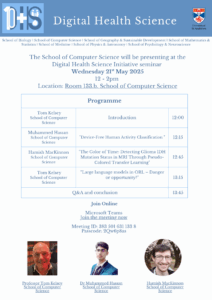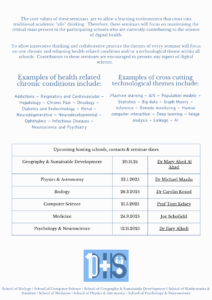![]() 3pm
3pm
![]() Thursday 19th June
Thursday 19th June
![]() JC 1.33A
JC 1.33A
Please join us for a talk at Research Software Group seminar by our guest Dr Volodymyr Kharchenko from the Department of Economic Cybernetics at the Faculty of Information Technologies, National University of Life and Environmental Sciences of Ukraine (https://nubip.edu.ua/en).
Talk title: Current research and collaboration opportunities with the Faculty of Information Technologies, National University of Life and Environmental Sciences of Ukraine (https://nubip.edu.ua/en)
Abstract: Dr Volodymyr Kharchenko is the Head of the Department of Economic Cybernetics at the Faculty of Information Technologies, National University of Life and Environmental Sciences of Ukraine (https://nubip.edu.ua/en). The scientific and innovative work of the faculty focuses on the areas of design, creation and implementation of modern information technologies in society and environmental management, in particular, on the development of methods and information technologies of agromonitoring using satellite image processing systems, the creation of a hybrid cloud-based informational and educational environment of the university, development and introduction of electronic agricultural advisory system of Ukraine, research of methods of processing big data, development of applied information systems in various subject areas. He will present these directions and outline opportunities for potential collaborations.



